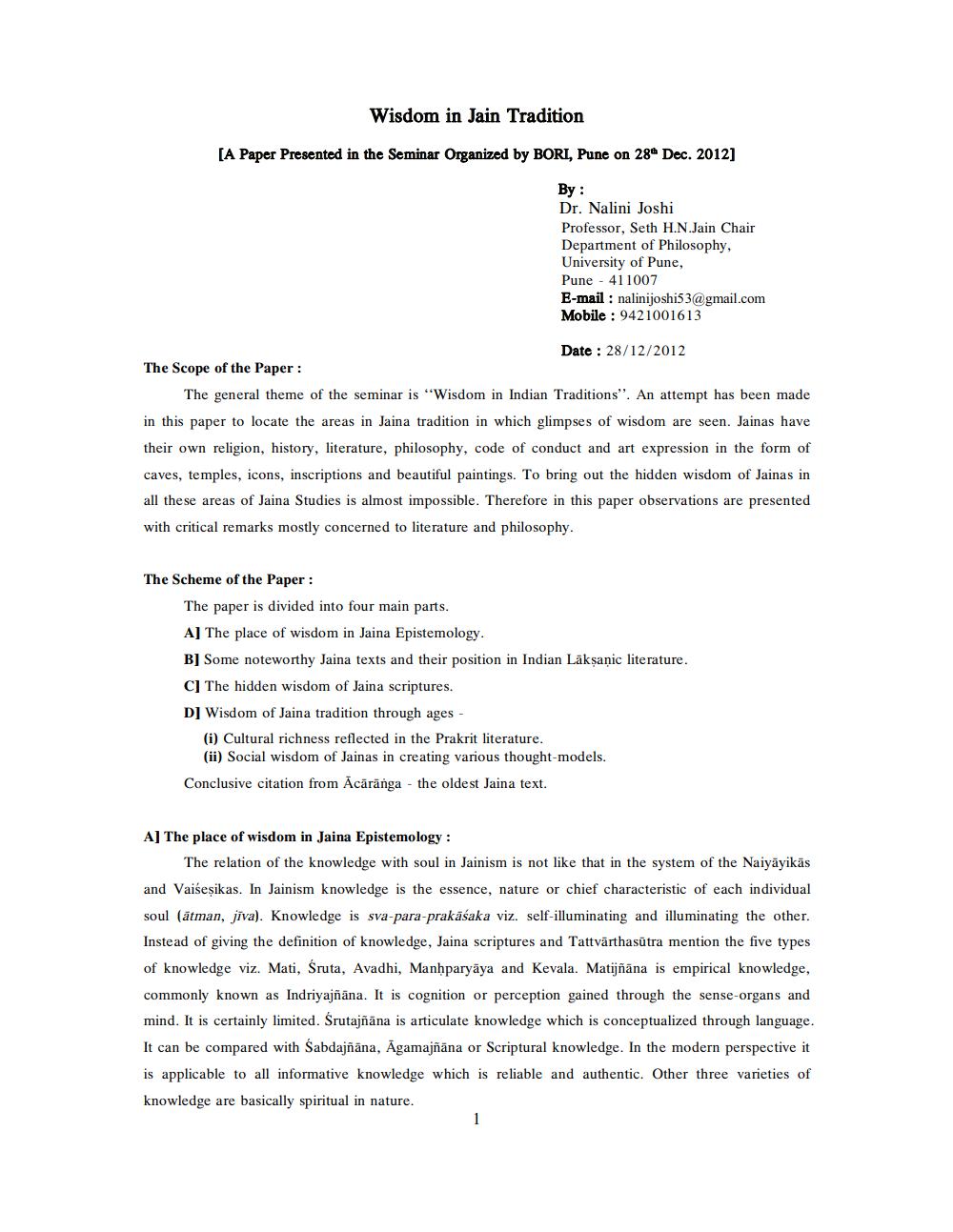Book Title: Wisdom in Jain Tradition Author(s): Nalini Joshi Publisher: Nalini Joshi View full book textPage 1
________________ Wisdom in Jain Tradition [A Paper Presented in the Seminar Organized by BORI, Pune on 28 Dec. 2012] By: Dr. Nalini Joshi The Scheme of the Paper: Professor, Seth H.N.Jain Chair Department of Philosophy, University of Pune, Pune 411007 The Scope of the Paper : The general theme of the seminar is "Wisdom in Indian Traditions". An attempt has been made in this paper to locate the areas in Jaina tradition in which glimpses of wisdom are seen. Jainas have their own religion, history, literature, philosophy, code of conduct and art expression in the form of caves, temples, icons, inscriptions and beautiful paintings. To bring out the hidden wisdom of Jainas in all these areas of Jaina Studies is almost impossible. Therefore in this paper observations are presented with critical remarks mostly concerned to literature and philosophy. E-mail: nalinijoshi53@gmail.com Mobile: 9421001613 Date: 28/12/2012 The paper is divided into four main parts. AJ The place of wisdom in Jaina Epistemology. B] Some noteworthy Jaina texts and their position in Indian Lakṣaṇic literature. C] The hidden wisdom of Jaina scriptures. DJ Wisdom of Jaina tradition through ages - (i) Cultural richness reflected in the Prakrit literature. (ii) Social wisdom of Jainas in creating various thought-models. Conclusive citation from Acaränga - the oldest Jaina text. 1 A] The place of wisdom in Jaina Epistemology: The relation of the knowledge with soul in Jainism is not like that in the system of the Naiyayikās and Vaiseṣikas. In Jainism knowledge is the essence, nature or chief characteristic of each individual soul (atman, jiva). Knowledge is sva-para-prakāśaka viz. self-illuminating and illuminating the other. Instead of giving the definition of knowledge, Jaina scriptures and Tattvärthasutra mention the five types of knowledge viz. Mati, Śruta, Avadhi, Manhparyaya and Kevala. Matijñāna is empirical knowledge, commonly known as Indriyajñāna. It is cognition or perception gained through the sense-organs and mind. It is certainly limited. Śrutajñāna is articulate knowledge which is conceptualized through language. It can be compared with Sabdajñāna, Agamajñāna or Scriptural knowledge. In the modern perspective it is applicable to all informative knowledge which is reliable and authentic. Other three varieties of knowledge are basically spiritual in nature.Page Navigation
1 2 3 4 5 6 7 8
